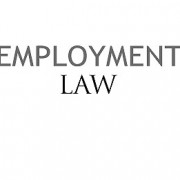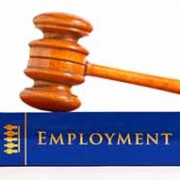Appeal tribunal – Overtime & Holiday Pay Rules
Appeal tribunal rules that non-guaranteed overtime should be included when calculating holiday pay
Employers given favourable interpretation on how far back claims can stretch but may see this overturned by higher courts
Compulsory overtime
In a long-awaited judgment, the Employment Appeal Tribunal (EAT) has decided that ‘non-guaranteed’ overtime pay should be included in the calculation of holiday pay. This is overtime that an employee has to do if the employer offers it, but which the employer does not guarantee to provide. The EAT indicated that it was a significant factor in its judgment that the employees in the cases before it were required to work the overtime on a regular basis.
The EAT decision relates to a number of cases being heard together on this issue, now known collectively as the Bear Scotland case but previously known as Neil v Freightliner which has now been settled out of court.
The ruling is in line with earlier cases on the calculation of holiday pay, such as British Airways v Williams and Lock v British Gas, which gave rise to many reports suggesting that employers faced claims going back to 1998 when the Working Time Regulations came into force.
Employer liability
A positive note for employers is that the latest decision has put limitations on how far back employees can claim. The EAT said that if employees were claiming for a series of deductions from wages (one of the ways to claim for underpayment of holiday pay), the series would be broken if there is a gap of more than three months between those deductions. The EAT has also confirmed that the inclusion of non-guaranteed overtime pay in the calculation of holiday pay only applies to the four weeks’ paid leave employees are entitled to under EU rules, not to the additional 1.6 weeks’ paid leave they are due under the UK’s working time regulations. This increases the likelihood of there being a gap bigger than three months between underpayments, and law firm Pennington Manches says that claims for underpayments before the three month gap “will normally be out of time”.
Practical steps
The firm suggests that from now on employers should “consider including any variable payments which meet the test of ‘normal pay’ (a payment sufficiently permanent and intrinsically linked to the tasks the worker is required to carry out) in holiday pay.” This could include shift pay, commission, some bonuses and other variable payments “unless they are genuinely ad hoc, and will include overtime that is guaranteed by the employer or compulsory for the employee. The position regarding truly voluntary overtime is less clear and would definitely not be covered if not worked regularly.” Pennington Manches advises employers to use the 12 week reference period under the Working Time Regulations to calculate this type of holiday pay and also suggests companies should audit their ‘variable pay’ systems to assess the risk of claims and perhaps consider adjusting them for the future.
Law firm Trowers and Hamlins suggests that one possible option for employers trying to minimise their liability for increased holiday pay is to “offer voluntary overtime instead of non-guaranteed overtime, giving employees the option to refuse to work the extra hours. Bank staff or agency staff could then be used to cover periods of increased demand.”
Possible appeal
The EAT was asked to refer the way it has interpreted the time limits for bringing a claim for underpaid holiday pay to the European court. It refused that request, but did give permission for the issue to go to the Court of Appeal. Gearalt Fahy, partner at law firm Watson Burton, said the EAT judgment “may offer some welcome relief to employers” but said the possibility of an appeal may mean the “final outcome could be years, rather than months away.” Noele McClelland, head of Thorntons employment law team, thought an appeal could take as long as five years if it went all the way to the Supreme Court, and suggested employers may wish to act now.
“There are currently thousands of claims either going through early conciliation with Acas, or ready to be raised, which were waiting for the outcome of this decision,” she said. “Businesses may want to take advantage of this judgment and seek to settle any historic claims, which will most likely only have a small value, before an appeal court takes a different view.”
Glenn Hayes, a partner at Irwin Mitchell, pointed out that the judgment doesn’t deal with whether an individual can bring a claim for breach of contract for underpaid holiday in this context, and thought it was “likely that this point will be litigated as potentially employees have six years to pursue a civil claim.”
Christopher Fisher, employment partner at Mayer Brown, suggested that the “proactive approach the court has taken to interpreting domestic law in light of EU law will again raise some eyebrows. The need for legal certainty held little weight with the EAT and it was content to insert language into the current domestic legislation. This type of approach, which is now becoming more commonplace, means employers can be caught out even when they are abiding by the exact wording of domestic legalisation.”
Adam Lambert, employment partner at Clyde & Co commented that the EAT “has changed the wording of the UK legislation, interpreting it in a way that could not have been anticipated when the legislation came into force in the 1990s. Businesses that have diligently complied with UK law for years now have to be told they have got it wrong.”
Government taskforce
The government is to set up a taskforce, including employers’ groups such as the EEF manufacturers organisation, the Federation of Small Businesses and British Chambers of Commerce, to work out how to limit the effects of the judgment on businesses. Business secretary Vince Cable said the government “will review the judgment in detail as a matter of urgency”.
Acas has said it will update its advice leafleton holiday pay to reflect the judgment and in the meantime has urged employers, workers and trade unions to discuss any concerns arising from it “with a view to seeking agreement on any temporary measures or policy changes they feel may be necessary”.










